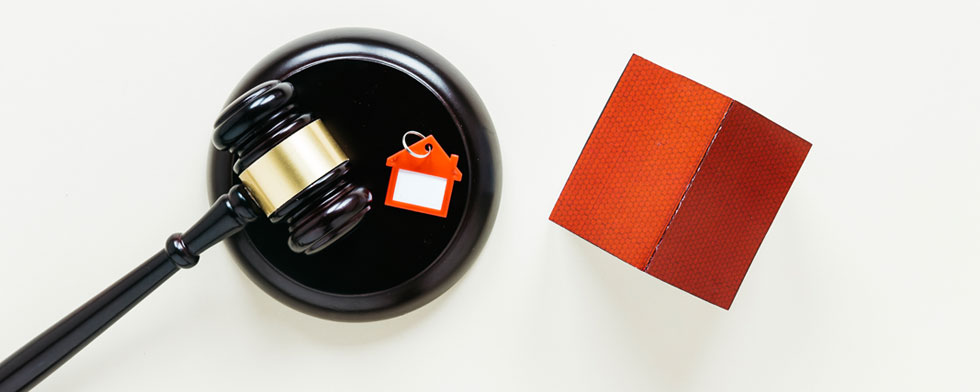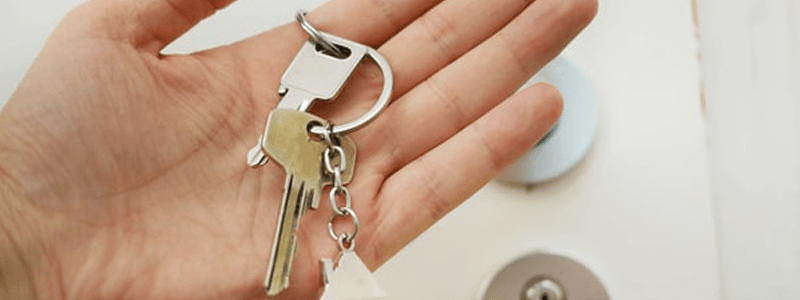Buying a property at auction can be quicker, easier and significantly cheaper than when buying a property through a regular sales process.
Buyers do need to be aware however, that the property is theirs as soon as the hammer comes down so it is essential to be well informed about the process and have everything in order beforehand.
Why Buy at Auction?
As well as offering the opportunity to purchase a property at a good price, auctions also offer property buyers an easier buying process.
In the last decade particularly, auctions have gained popularity due to buyers wanting to avoid getting stuck in a house buying chain and the associated risk of the sale process falling through. With auctions, the sale is agreed as the hammer strikes with little risk of the sale falling through afterwards.
Auctions are a good place to buy if you are looking for a unique or quirky property. These ‘different’ properties can be hard to sell via estate agents so are often found for sale at auctions instead.
What are the Fees Associated with Buying a Property at an Auction?
There is usually an administration fee of between £200 and £300 when buying at auction. In addition, the usual costs of buying a property apply including stamp duty and solicitor costs.
How to Finance your Property Purchase
As with any property purchase, unless you have a large pot of cash to use, you will need to apply for a mortgage. When buying at auction, you will need to first get an ‘agreement in principle’. This is an early confirmation from a lender that they can offer you the full mortgage needed. This is not a guarantee however so there are some risks involved.
It is paramount that you seek advice from a mortgage expert to ensure you are not making a mistake before heading to the auction. You will also need to be able to pay a 10% deposit on the day of the auction to secure your purchase.
How to find Properties for Sale through Auction?
Find and contact the auction houses who work in the area you are looking to buy in. Download their most recent catalogue of properties – properties are usually listed just 3-4 weeks before the auction date so if you find something of interest, you’ll need to act fast to ensure you are able to view and research the area ahead of the auction.
Preparing for the Auction
View all the properties you are interested in. There are often open viewing times for auction properties whereas sometimes private appointments are required.
Auction properties usually require renovation work done to do them and sometimes complete modernisation work is required so it is advisable to take an architect or a builder to attend second viewings.
They will identify potential issues that need addressing and give you a rough idea of how much the renovation work will cost you.Research the price of other properties for sale in the area and speak with local estate agents about the market in general and for their opinion on typical prices.
Estate agents are usually happy to help as you are a potential customer to them should you decide to purchase an auction property to renovate and sell on.
Attend a few auctions as ‘dummy runs’ to get to know how they work and to get familiar with the environment.
Read the legal pack which contains all the information you’ll need for the property: leasehold information, title deeds, local authority, environmental searches, fixtures-and-fittings list and a seller’s information form.
At the Auction
Some people find auctions exciting whilst others find them nerve-racking but stay calm whichever state you find yourself in! Ensure you know clearly exactly what you can and can’t afford and stick to it so that you don’t overspend.
Bring everything you need. Proof of deposit and two forms of identification are key.
Is the Property Suitable for a Mortgage?
Many auction properties are not going to be suitable for a standard mortgage lender. You can read more about this in one of our previous blog posts,unpopular properties and reading our guide to non-standard construction mortgages.
If the property is not accepted you may need to consider a self-build mortgage, development loan or some form of bridging finance. Don’t panic, you can speak to our team for help with all of these options.
Buying at auction requires a lot of preparation and thought but it can work out as a good property buying method fofr those looking for a good deal. If you need help with financing a potential auction purchase, Visit Propillo to contact our team of mortgage advisors.




